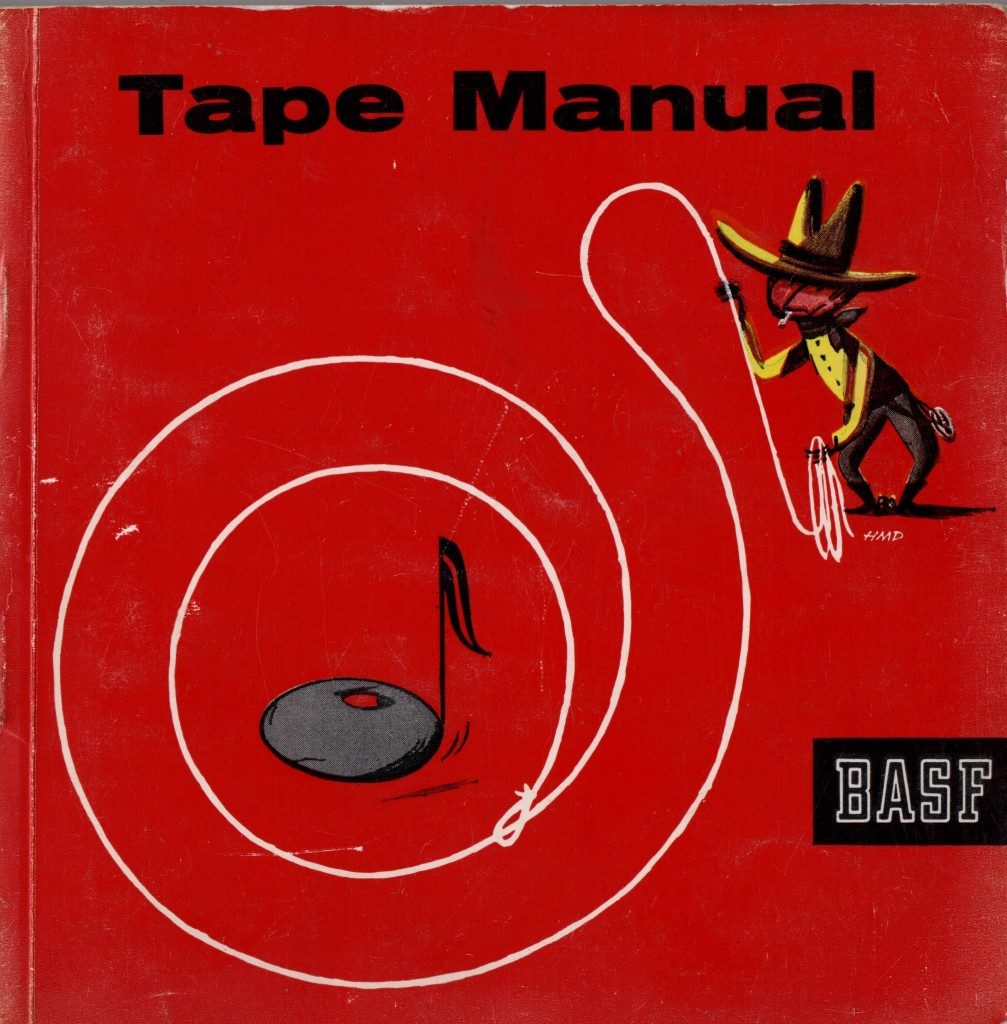‘It seems we are living in an age in which practically every dream comes true. At no time in the past have so many scientific discoveries and inventions changed our way of life and the face of the world. Yes, we live in the age of science! Maybe we are forgetting to be awed, or are we so used to acquainting ourselves with the new that we seem to take anything for granted nowadays?’
This is the opening paragraph to A Comprehensive Booklet on BASF Magnetic Recording Tape, published c.1965 by the German company BASF.
The booklet, that we will feature more of in later posts, offers advice and instructions on how to record sound on magnetic tape.
While in today’s culture we may well have forgotten ‘to be awed’ by sound recording technology, there was a time when home recording was an extremely novel activity. As our recent post about Brian Pimm-Smith’s tapes demonstrates, sound recording was done by enthusiasts – it was by no means an everyday activity.
Tape recording clubs were however very popular in the 1960s-1970s, with groups forming all around the country.
Sound artist Mark Vernon describes how ‘dedicated amateurs would meet and swap tips, exchange recordings, enter competitions and arrange activities such as field recording trips. Eager members would lug heavy reel-to-reel recorders around the countryside, to church concerts, fire stations, airports and carnivals to capture the sounds around them.’
The excitement of recording sound on a ‘mysterious little reddish-brown ribbon’ is clear from reading the BASF manual. There is no shortage of awe for the ‘magic tape that practically does everything from writing out cheques to guiding missiles in space.’
In contemporary western culture the use of recording technologies has become as common as eating or breathing. Mystery and magic are words not often used to describe our laptops, phones or tablets. Yet it may well be worth remembering how mysterious and magic technology can be. That the things we take for granted as part of our everyday lives were once new inventions that radically transformed perceptions and our ability to document the world we live in.
As the BASF manual enthused, ‘the multitude of different impressions in the acoustic world…are just as beautiful and gratifying as those of the visible world [and] can now be conserved for all posterity.’
